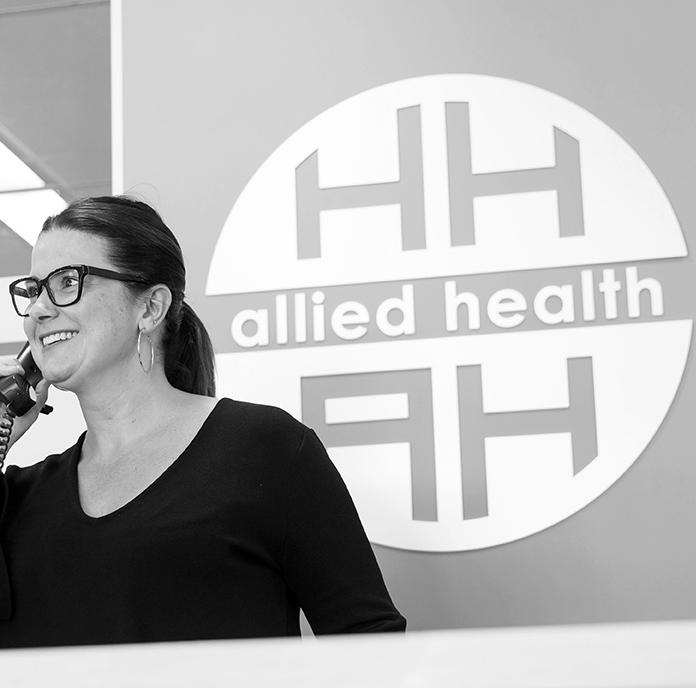Pregnancy Planning and Care
Hunters Hill Medical Practice provides pregnancy planning and care
Planning a baby is an exciting time for prospective parents. As a community focused practice offering comprehensive care, Hunters Hill Medical Practice offers medical, nursing and allied health services that can help patients planning a pregnancy and beyond.
When you are planning on becoming pregnant and during your pregnancy, your GP is able to provide ongoing care and support to help you have a healthy pregnancy and give your baby the best start in life.


When to see your GP when planning a pregnancy
When planning a pregnancy there are many things to consider, even if it isn’t your first baby. It is ideal that women and their partners visit their GP at around three to six months prior to trying to conceive. This will allow us to discuss changes that can be made to maximise the mother’s health prior to becoming pregnant. For example, a simple blood tests may be requested and Folate supplementation prescribed.
What if I’ve been trying to become pregnant and haven’t conceived?
Most healthy fertile couples will become pregnant within 12 months of trying, however women over the age of 35 years can take up to twice as long to conceive. If you have been trying to become pregnant for 12 months without success, or if you are over 35 years old and have been trying for 6 months without success, you should arrange for a discussion with your GP. Your GP will be able to discuss fertility issues with you, and where necessary, arrange for the next steps to assist you with access to specialty fertility services.
What pre-pregnancy planning issues will be addressed with your GP?
Pre-pregnancy planning with your GP will cover a number of different issues. These include:
Your blood group
If you don’t know your blood group, your GP will arrange for a blood test. If you have “Rhesus Negative” you may need additional medical attention during your pregnancy.
Health checks and tests
Your GP will check your overall health and discuss any prescribed, herbal, or over the counter medicines you are currently using. This is to understand any issues or medications that may have an impact on yours, or your baby’s health. They will then also arrange for the first series of routine tests done during pregnancy. Some of these tests may be partially covered by Medicare and your GP will be able to advise you of this.
Health issues and family medical history
If you have a family history of genetic disorders, if you are over 35 years old, or if you have previously had a child with a genetic disorder, you are at a higher risk. Discussing your history with your GP will enable them to discuss your options around genetic testing and counselling as well as the tests that are available when you conceive such as the Harmony Test that can detect genetic disorders.


Nutrition and supplements
For the good health of both you and your baby, it’s important to have a healthy, nutritious diet. Freshly prepared, low fat, high fibre food options are best during pregnancy. If you have particular diet restrictions (i.e., vegan) you may benefit from iron supplementation orally or via iron infusion. You should discuss this with your GP to determine if you may need any additional supplementation either before or during pregnancy. Other important supplements for women prior to becoming pregnant and during pregnancy include:
Folic Acid
Folic acid supplements are recommended for all women trying to conceive. Taking folic acid for a minimum of three months prior to pregnancy and then throughout pregnancy has been proven to reduce the risk of a baby being born with a neural tube defect such as spina bifida. Your GP will advise you on the right folic acid dosage for you.
Iodine
Iodine is an essential requirement for thyroid hormone production. Thyroid hormones are vital for your developing baby’s brain and nervous system, and also in babies and young children. Many Australian women don’t obtain enough iodine from their diet. You should discuss with your GP the right amount of iodine for you during your pregnancy.
Vitamin D
Vitamin D is important for your health and the health of your developing baby. Women who have reduced sunlight exposure may be at risk of Vitamin D deficiency. Your GP may test your Vitamin D levels and recommend you take supplements.
Infections and vaccinations
Having a fever while pregnant can be harmful, and women who contract the flu during pregnancy have an increased chance of complications. Other infections that are a risk to pregnancy if they occur before conception or during pregnancy include:
- Rubella
- Syphilis
- Toxoplasmosis
- Listeria
- Cytomegalovirus
- HIV
If you are planning a pregnancy, it’s important to check your immunity and discuss any immunisations you need prior to becoming pregnant with your GP.
Lifestyle modifications
If you don’t have a regular exercise regime, it is good idea to set this in progress before becoming pregnant and throughout your pregnancy for the good health of you, and your baby. Ideal exercises throughout pregnancy include walking and swimming. It is best to avoid intense exercise and becoming too hot whilst pregnant.
Other important lifestyle modifications prior to becoming pregnant include:
- Cessation of smoking (ideally 3 months prior to conception)
- Decreasing your caffeine intake (maximum of two cups of coffee per day)
- Eliminate alcohol consumption
- Eliminate use of illicit drugs (such as marijuana and ecstasy)


Allied Health Services
Other services co-located at HHMP that may be of interest to you during the pregnancy planning, antenatal and postnatal process include:
Planning your antenatal care
Antenatal care is the care you receive during your pregnancy. You can discuss with your GP your options for antenatal care and the birth of your baby. This can include specialist obstetric care, birthing in a public hospital, a private hospital or at home. Your GP can discuss your care during your pregnancy and your available birthing options.
Local hospital options include:


If you are planning – start planning!
If you are thinking of becoming pregnant, arrange for a consultation with your GP to discuss any concerns you might have, and get started on the planning process to ensure the good health of you and your baby.







